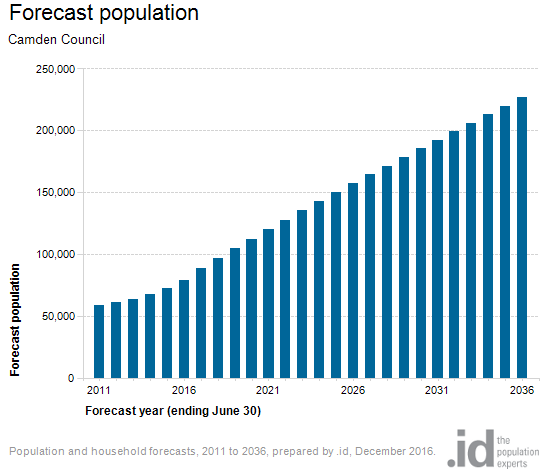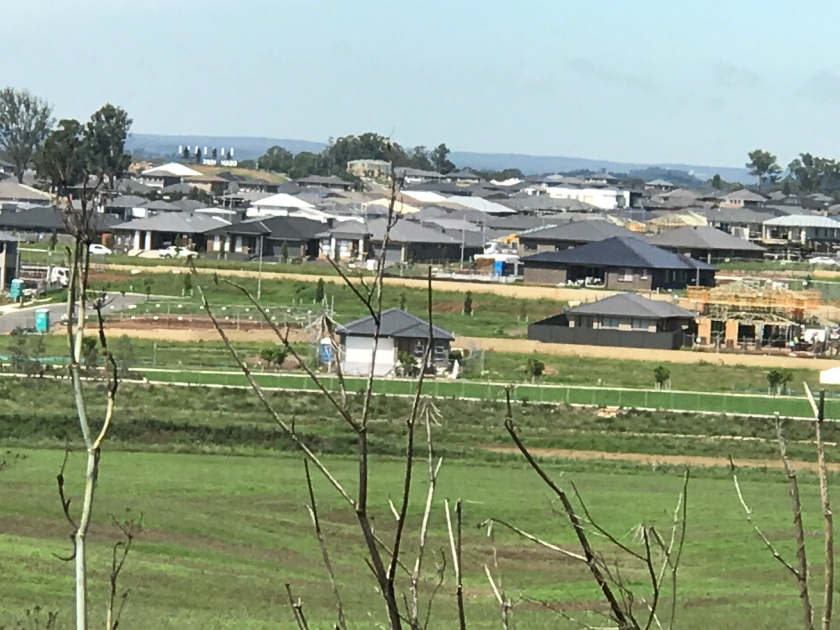According to statistics provided by Camden council, record growth in the local area and increases to the population, raises the question of sustainability in Camden.
In a recent press release, Minister for Planning and Housing, Anthony Roberts, said “new housing completions in Sydney hit the highest level for 45 years last year and look set to reach an all-time record later this year.”
Last year Camden had 2, 144 new homes built, and the projected figures from the Department of Planning and Environment for dwelling requirements for 2021, are 38,850 (all types of dwellings included), along with population growth estimates at 109,400 for the same year.

Image from Camden Council website
According to Keith Steer, Principal at Yellow Brick Road Campbelltown, infrastructure such as roads and public transport upgrades, as well as the building of new schools, parks and shopping centres, are needed to keep up with the population growth, and make the community functional and viable.
“Growth can’t be sustained,” said Steer. “There eventually will be a large stabilization – I won’t call it a decline…but it has to slow down,” he said.

Keith Steer, Principal at YBR. Photo: Helen Megalokonomos
“While home prices are going up, it’s attributed to a shortage of housing right now, a seller’s market, however, we will reach a time where there will be no further growth, with all land sold to developers both local and foreign,” said Mr Steer.
Harrington Grove, Kirkham Rise and Oran Park, are three of the newly developed estates, commanding premium prices, and changing the look of our landscape from semi-rural to developing towns, particularly in the case of Oran Park, set to accommodate over 25,000 residents.

The changing face of Oran Park development. Photo: Helen Megalokonomos
In a media release this month, APRA, the government body overseeing banks and financial institutions, revealed “reforms have been undertaken in response to deficiencies in the management of traded market risk that were identified during the financial crisis of 2008. The Basel Committee timetable anticipates domestic implementation of these reforms by January 2019.”
The government has been putting pressure on lending institutions, to slow the amount of investor loans being approved, trying to free-up home purchases to owner-occupiers. Smaller, lesser known lenders have already raised their investor loan rates, and then two of the ‘big four’, NAB and Westpac followed suit.
“We’ve got the Blue Mountains on one side, we’ve got Wollongong, we’ve got Newcastle and then the ocean. Eventually there’s not going to be any land, and the problem is, we’re taking out our farmland too in the area, so what’s going to be left for us to eat?” Steer said.
Local fruit grower Ed Biel, told the ABC News this month, that agricultural land is being sold to developers for millions of dollars, as fellow growers decide to pack-up and go.
He claimed the number of farms growing our food, are shrinking.
“I can pick my fruit in the morning and deliver it to Flemington markets tonight and you can purchase it tomorrow, but it’s not only the freshness, it’s the connection the city will lose to its agrarian beginnings,” he said.
Article by: Helen Megalokonomos
Resources: APRA Report
